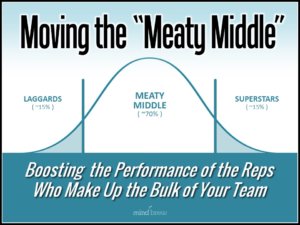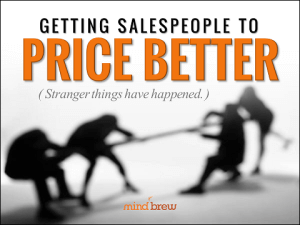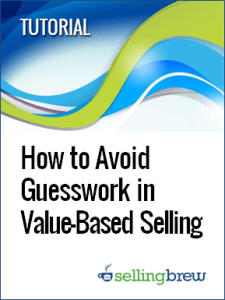Being the “bad guy” is almost never fun. But sadly, it’s a role Sales Ops frequently find themselves in.
Imagine this: The sales team is celebrating a big “win.” There’s lots of talking and laughing in the office—maybe even cake. Everyone is congratulating the salesperson on closing a huge deal. And then you’re really avoiding being the Debbie Downer who interrupts the party. You know the truth. Maybe you want to blurt out, “Sure, you closed the deal, but you missed the pricing target by 10 percent. This deal is going to be terrible for our margins.” Or maybe you’re holding back from saying, “We should have closed this deal 6 months ago. The cycle time was horrendous compared to other deals we’ve had like this.” Or you could be there seething knowing, “Our analysis showed this deal should have been twice as big as what we got. It’s pretty clear our competitor is having the exact same party…it sure would have been better for us if we had closed the whole deal.”
Sound familiar?
It’s often the case that one or two salespeople are the worst offenders. If these problems persist for a long time (as they usually do), you may get the unenviable task of delivering lectures about the importance of improving cycle times, capturing more margin or hitting the right targets. It’s a thankless job. Making matters worse, you know that the salespeople are probably going to keep on doing exactly what they’ve always been doing no matter what you say.
It’s tremendously frustrating. If the situation happens often enough, it can even make you question your career choices. But since Sales Ops usually doesn’t have the power to fire or fine the sales team, it may seem like there’s nothing you can do to make it better.
However, there is actually something you can do, and it’s not all that difficult.
Instead of delivering ineffective lectures, we recommend that you leverage the power of peer pressure. Get the salespeople to police themselves so that you can stop playing “bad cop.”
How?
One of the easiest ways is to publish a “closest to the pin” ranking each month. At month end, you simply look back at all the deals closed and calculate how close each salesperson was, on average, to key metrics. Maybe it’s target pricing, or close rates, or order volume, or total number of deals. Then you rank the salespeople in order by their performance and put the list somewhere that everyone can see it.
If you want to make the ranking even more effective, offer a very small prize for each month’s winner. It can be a gift card for lunch out or just a silly trophy that gets passed around the sales team or something else inexpensive. The real prize, of course, is bragging rights—something every salesperson would love to have.
You’ll be amazed at how well this simple technique works. We have quite a few resources that describe it in more detail and offer some other helpful strategies that motivate your salespeople to perform better. If you’re tired of being the bad guy or gal, stop lecturing and put peer pressure to work for you.















